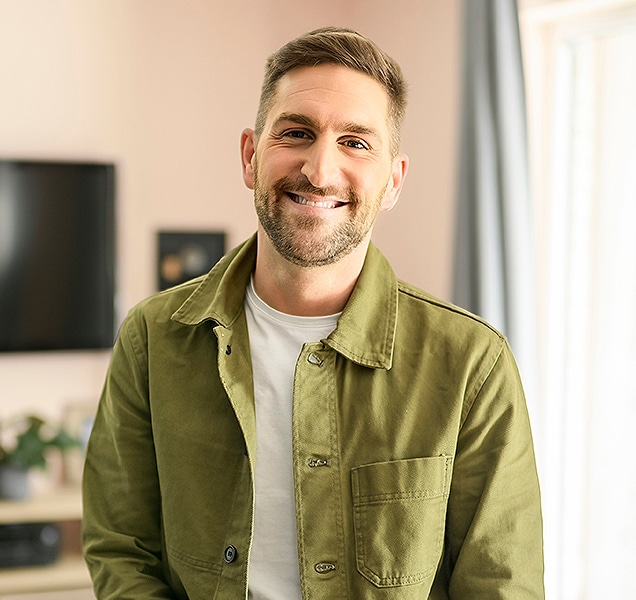Traumatic Dental Injuries
While most traumatic dental injuries occur in children and teenagers, people of all ages can be affected, usually as a result of sports mishaps, automobile accidents, or bad falls. If you’ve experienced a traumatic dental injury it is important to visit your endodontist in order to determine any necessary treatment. Any dental injury, even if apparently mild, requires examination by a dentist or an endodontist immediately. Sometimes, neighboring teeth suffer an additional, unnoticed injury that will only be detected by a thorough dental exam.

Chipped or Fractured Teeth
Chipped teeth account for the majority of dental injuries. Most chipped or fractured tooth crowns can be repaired either by reattaching the broken piece or by placing a tooth-colored filling. If a significant portion of the tooth crown is broken off, an artificial crown or “cap” may be needed to restore the tooth.
Injuries in the back teeth often include fractured cusps, cracked teeth, or a more serious split tooth. If cracks extend into the root, root canal treatment and a full coverage crown may be needed to restore function to the tooth. Split teeth may require extraction.

Dislodged (Luxated) Teeth
During an injury, a tooth may be pushed sideways out of or into its socket. Your tooth will be repositioned and splinted to adjacent teeth to stabilize it. Root canal treatment is usually needed for permanent teeth that have been dislodged and should be started a few days following the injury.
Children between seven and 12 years old may not need root canal treatment, since teeth are still developing. For those patients, we will monitor the healing carefully and intervene immediately if any unfavourable changes appear.

Knocked-Out (Avulsed) Teeth
If a tooth is completely knocked out of your mouth, time is of the essence. The tooth should be handled very gently, avoiding touching the root surface itself. If it is dirty, quickly and gently rinse it in water. Do not use soap or any other cleaning agent, and never scrape or brush the tooth. If possible, the tooth should be placed back into its socket as soon as possible. The less time the tooth is out of its socket, the better the chance for saving it.
Once the tooth has been put back in its socket we will evaluate it and check for any other dental or facial injures. A stabilizing splint will be placed for a few weeks. Depending on the stage of root development, we may recommend root canal treatment a week or two later.

Root Fractures
A traumatic injury to the tooth may also result in a horizontal root fracture. The location of the fracture determines the long-term health of the tooth. If the fracture is close to the root tip, the chances for success are much better. The closer the fracture is to the gum line, the poorer the long-term success rate. Stabilization with a splint is sometimes required for a period of time.

Traumatic Dental Injuries in Children
Chipped primary (baby) teeth can be aesthetically restored. Dislodged primary teeth can, in rare cases, be repositioned. However, primary teeth that have been knocked out typically should not be replanted. This is because the replantation of a primary tooth may cause further and permanent damage to the underlying permanent tooth that is growing inside the bone.
Children’s permanent teeth that are not fully developed at the time of the injury need special attention and careful follow-up, but not all of them will need root canal treatment. In an immature permanent tooth, the blood supply to the tooth and the presence of stem cells in the region may enable stimulated continued root growth.

Root Resorption
Resorption occurs when your body, through its own defense mechanisms, begins to reject your own tooth in response to the traumatic injury. Following the injury, we will help you follow-up to have the tooth examined or treated at regular intervals to ensure that root resorption is not occurring and that surrounding tissues continue to heal.
With any traumatic dental injury, time is of the essence. Contact us immediately.

Patient Testimonials
It is a pleasure going to the dentist when it is Dr. Pedlar. I know his credentials are A 1 and his diagnosis are accurate and his work is always excellent. I have been a patient of Dr. Larry Pedlar and now Dr. Patrick Pedlar for many years. The offices are pristine and follow all the present day guidelines. The staff are wonderful , caring , efficient and excellent. I always recommend them when asked in my present circumstances at LaSalle retirement home.
- Janice D.
I trust Dr. Pedlar and his team to provide exceptional care. The advice and treatment I have received are always accurate. I never have to return for the same issue twice. Thank you. I highly recommend this dental practice.
- Lynn C.
I am delighted with the quality of the service I receive on every visit! Perhaps even more important is the fact I feel truly 'cared for' from the moment I walk into the beautifully appointed, comfortable office and with every person in the practice. Everyone I have introduced to this wonderful health care team has been well treated, and I am very happy to stay with this kind, professional team. Thank you for years as my trusted health partner! I have a wonderful smile as proof of your great skill!
- Laura L.
So impressed with how well you all have adapted to COVID in re-fitting your offices and procedures. Incredibly professional and thorough but I would expect nothing less from your team, as it's been my experience with the Pedlar group for the past 50 years. PS: Marlene as always did a great job.
- Rob M.
It is a pleasure going to the dentist when it is Dr. Pedlar. I know his credentials are A 1 and his diagnosis are accurate and his work is always excellent. I have been a patient of Dr. Larry Pedlar and now Dr. Patrick Pedlar for many years. The offices are pristine and follow all the present day guidelines. The staff are wonderful , caring , efficient and excellent. I always recommend them when asked in my present circumstances at LaSalle retirement home.
